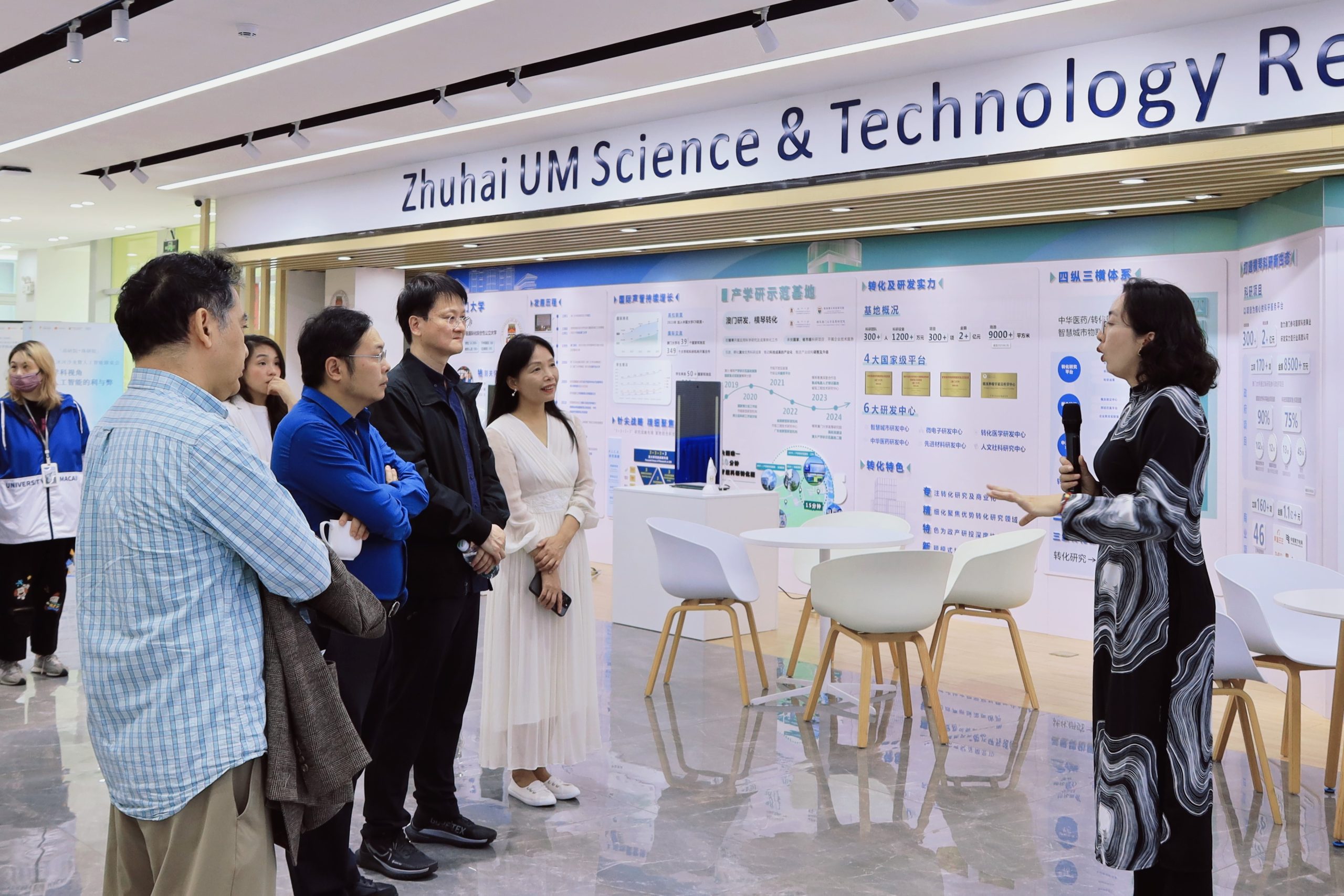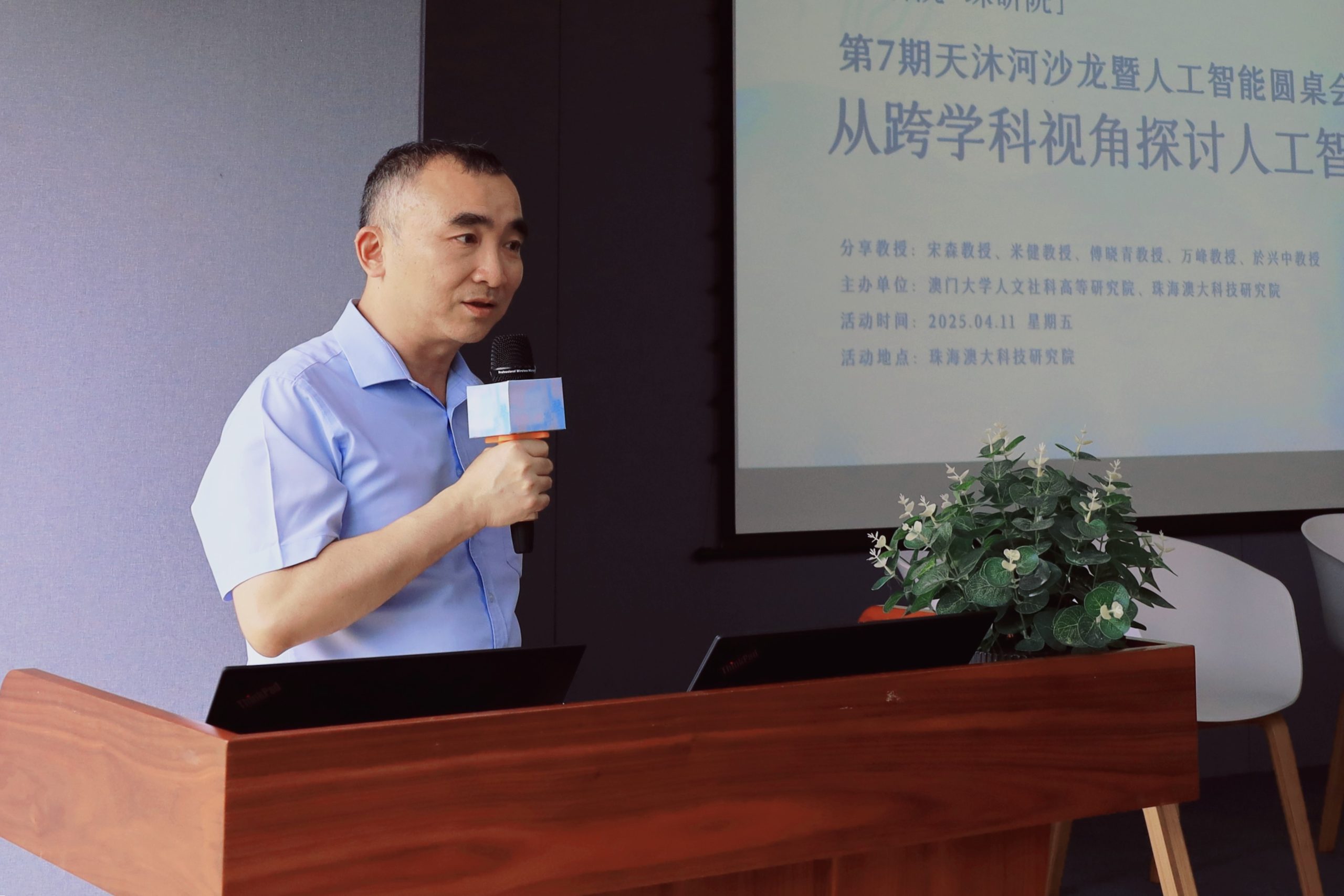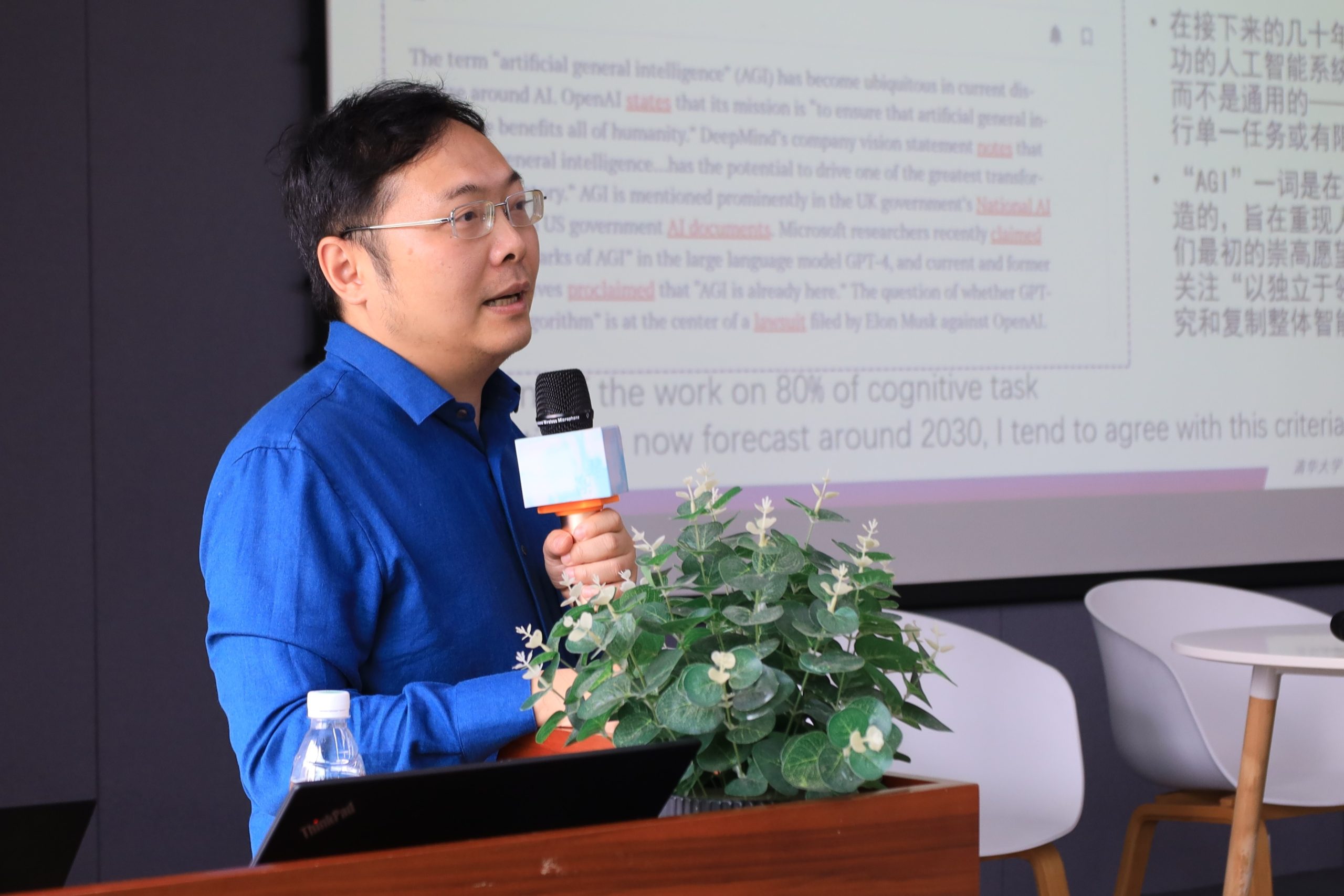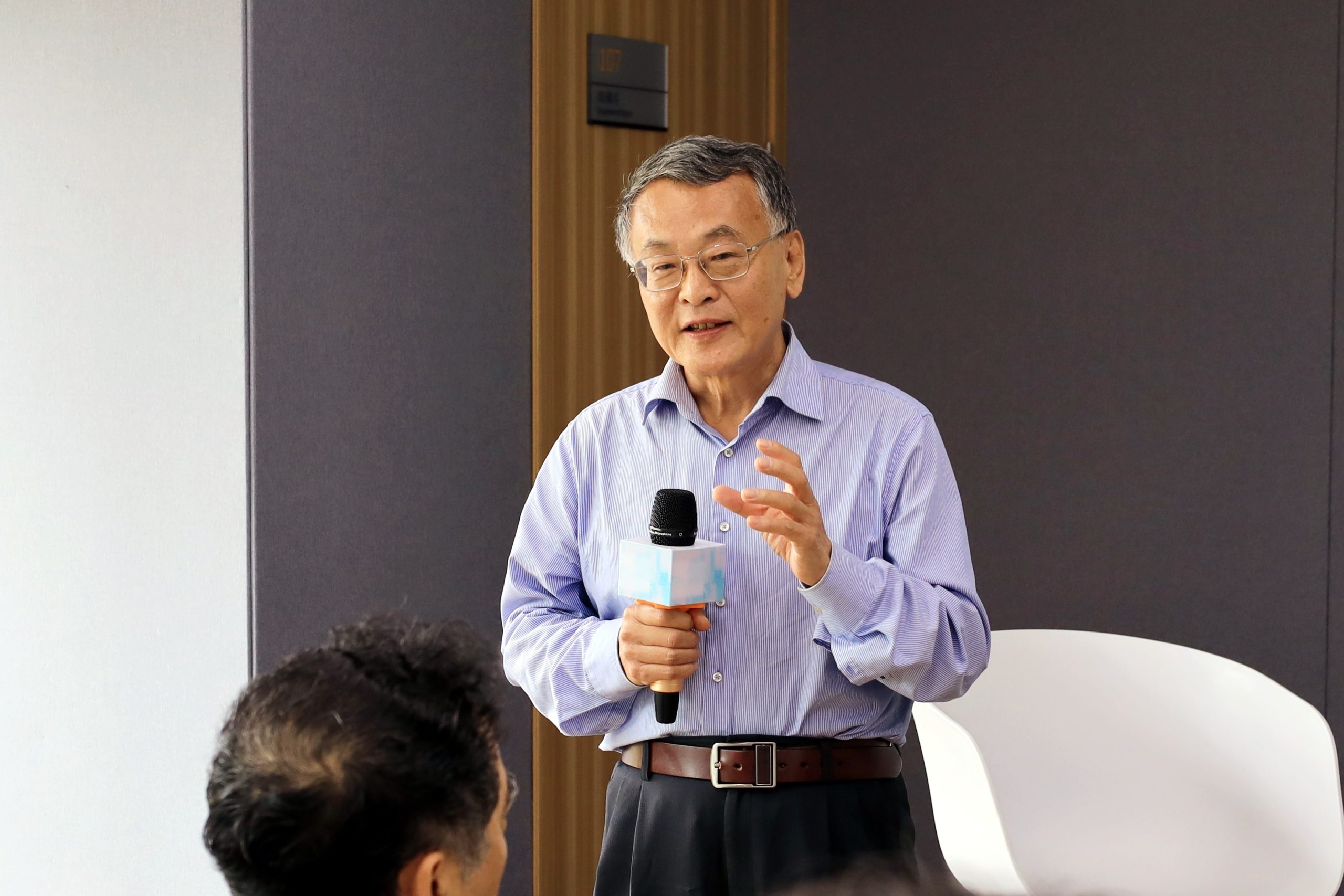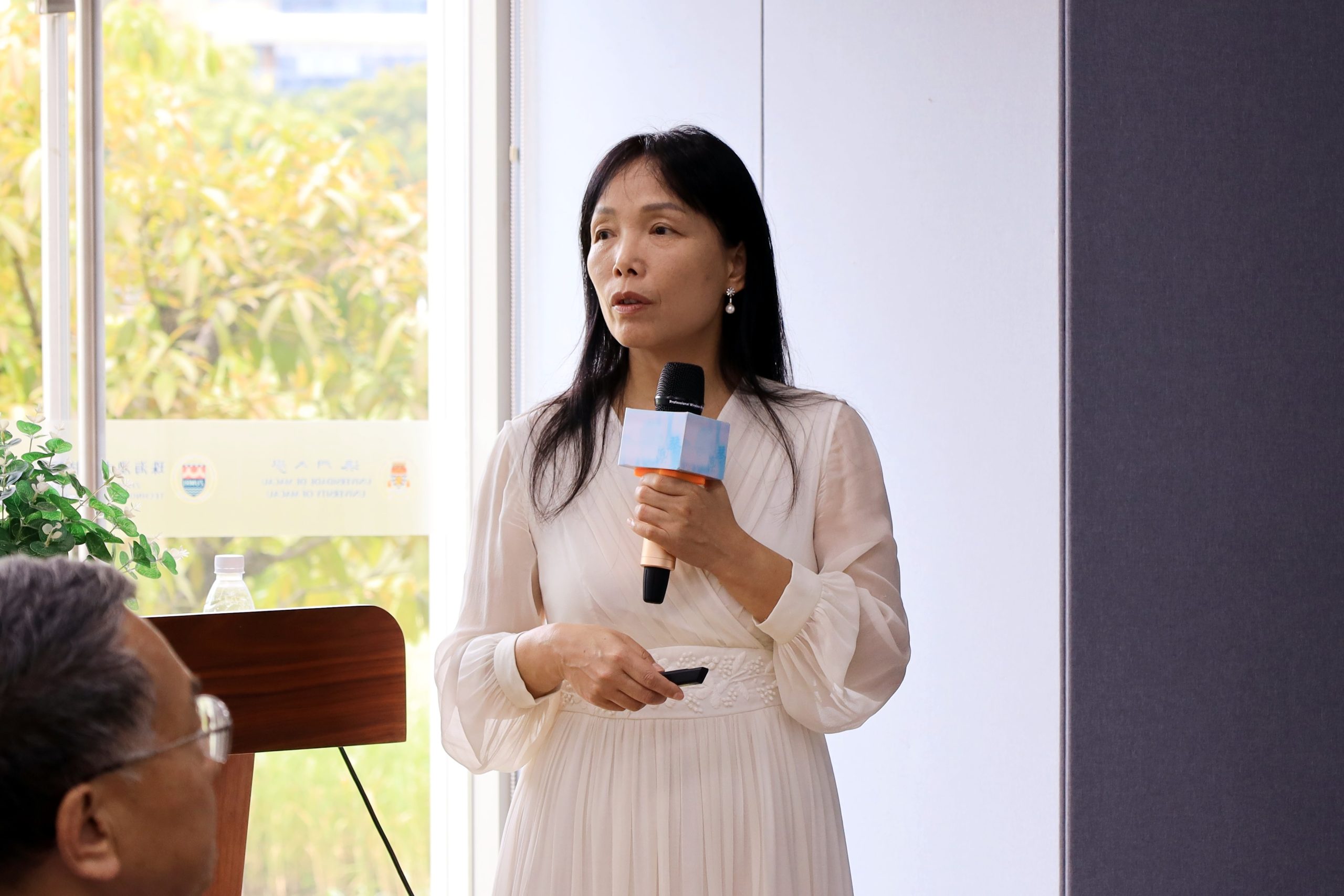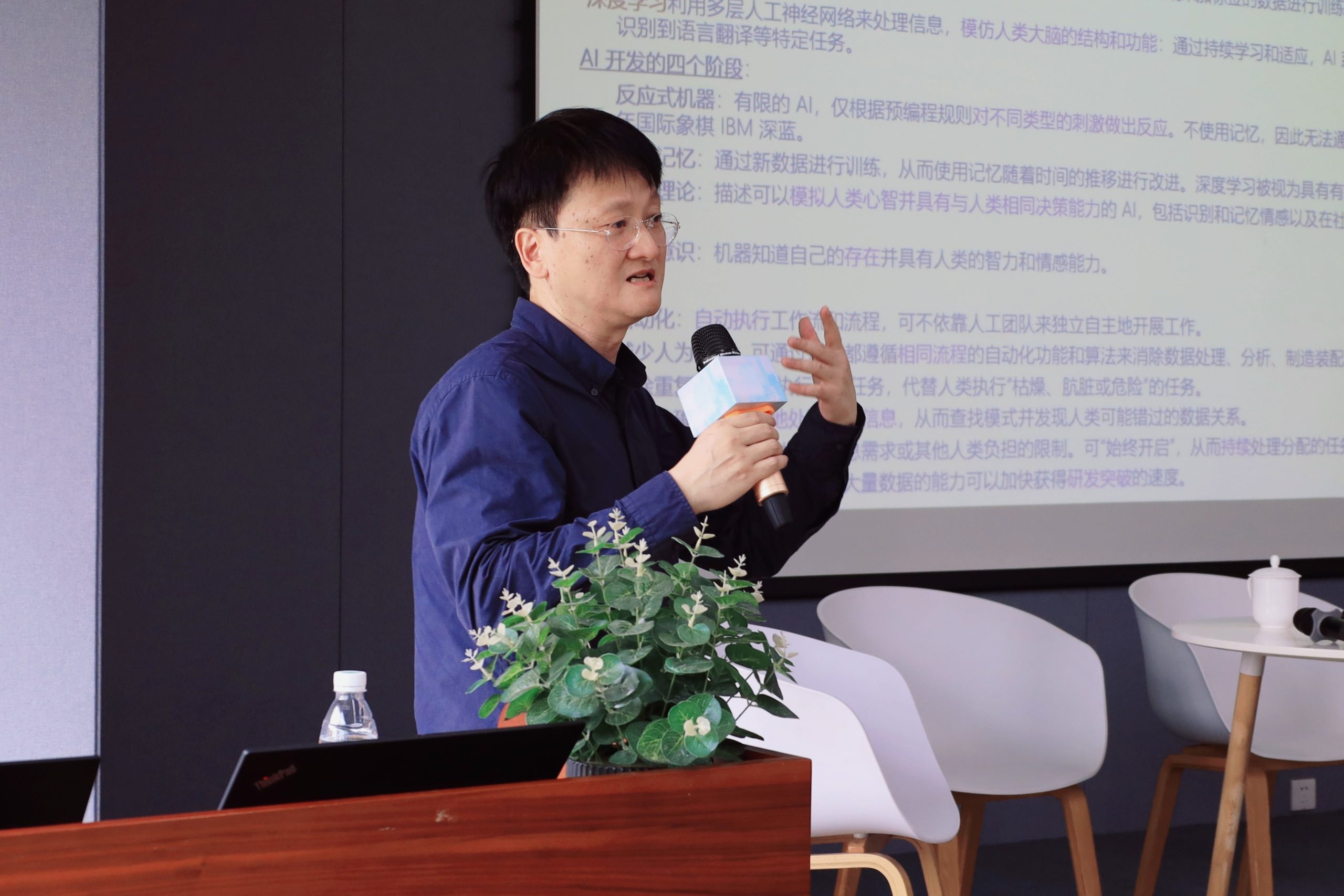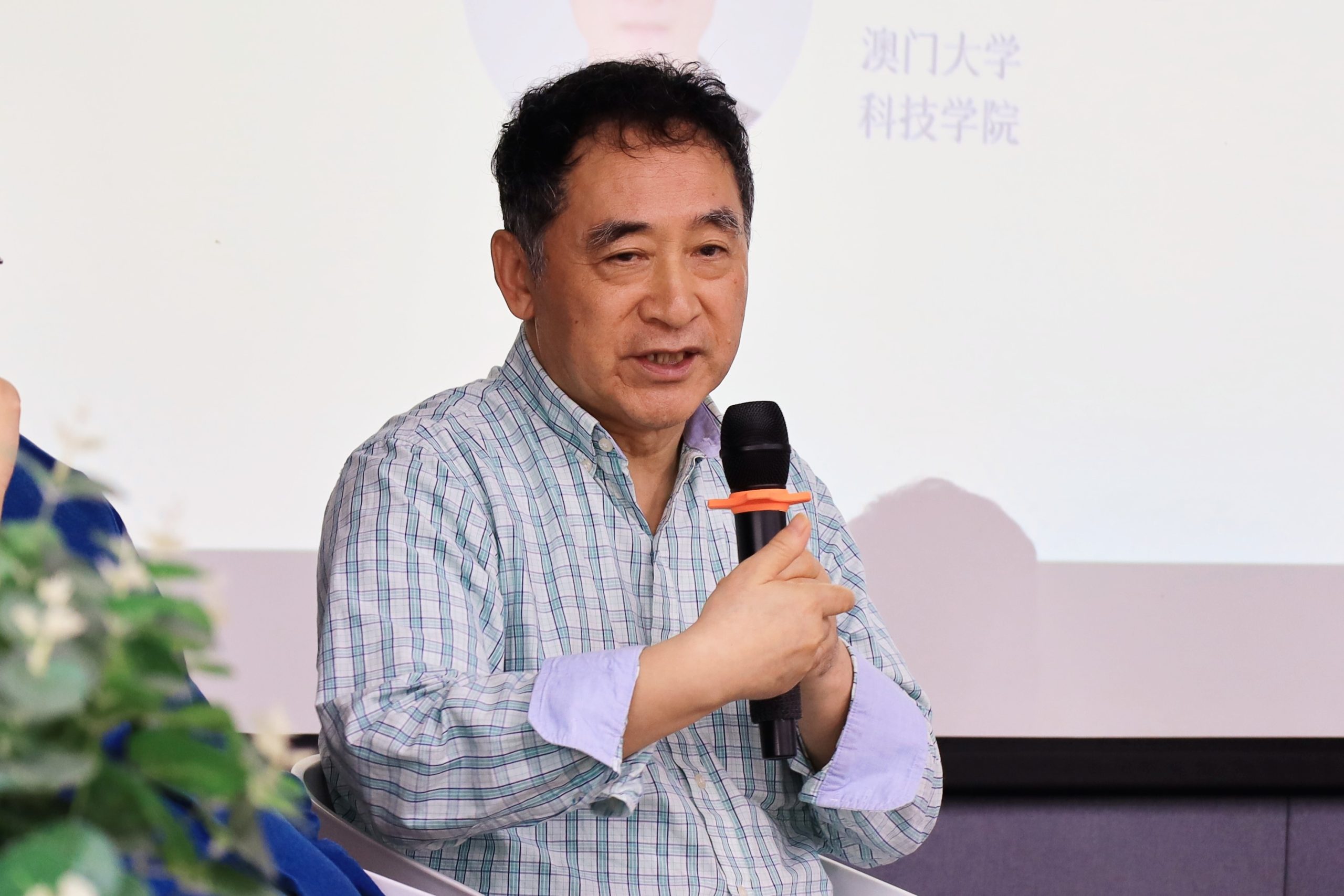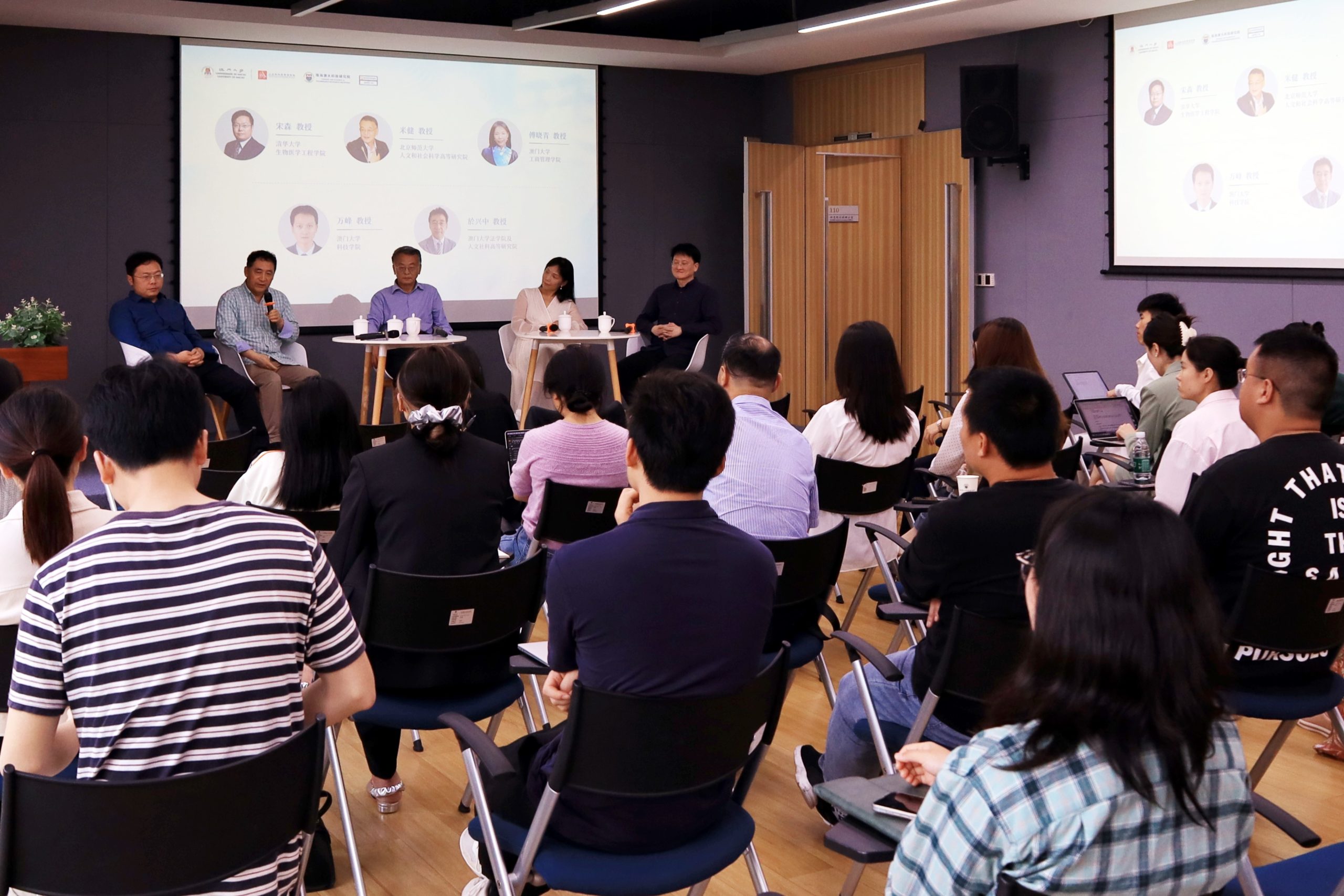【IAS x ZUMRI】The 7th Tian Mu River Salon Series of Roundtable Discussion on Artificial Intelligence: “Exploring the Benefits and Harms of AI from Interdisciplinary Perspectives” was successfully held
【高研院 x 珠研院】第七期天沐河沙龍暨人工智能圓桌會:“從跨學科視角探討人工智能的利與弊”圓滿舉行

| The IAS promotional video has been launched! We cordially invite you to watch and help spread the word! | ||
|
English |
|
中文 |
 On the occasion of the fifth anniversary of the Institute for Advanced Studies in Humanities and Social Sciences at the University of Macau, we would like to express our gratitude for your unwavering support to us. Your involvement and support have helped build a strong foundation for our interdisciplinary research platform and inspired us to keep moving forward. The IAS is excited to carry on our mission, rooted in Macau, by organizing high-quality academic activities that showcase the diversity of academic collaboration. On the occasion of the fifth anniversary of the Institute for Advanced Studies in Humanities and Social Sciences at the University of Macau, we would like to express our gratitude for your unwavering support to us. Your involvement and support have helped build a strong foundation for our interdisciplinary research platform and inspired us to keep moving forward. The IAS is excited to carry on our mission, rooted in Macau, by organizing high-quality academic activities that showcase the diversity of academic collaboration. |
||
由高研院及珠研院主辦的第七期天沐河沙龍暨人工智能圓桌會於4月11日在珠海澳大科技研究院成功舉辦。是次圓桌會邀請到清華大學生物醫學工程學院宋森教授,北京師範大學人文和社會科學高等研究院米健教授,澳門大學工商管理學院傅曉青教授、科技學院萬峰教授、法學院及高研院於興中教授擔任講者,主題為“從跨學科視角探討人工智能的利與弊”。高研院與珠研院繼人文社科講座后再度推出跨界合作,旨在跨越學院疆界,實現學術資源協同效應,促進人文與科技的對話,鼓勵結合人文社科與科學科技的跨界探索。
陳國凱教授致辭時表示,天沐河沙龍作為珠研院的創新合作交流平台,旨在分享行業趨勢和前沿技術。若僅從科學的視角看待人工智能則未免片面,期以此次圓桌會匯聚群賢,吸收不同學科領域的學術觀點,藉以思考人工智能的利與弊。
萬峰教授於開篇釐清了人工智能的重要概念,人工智能就是模仿人的智能,像人一樣思考決策,並圍繞數據展開、通過算法運行,其中的深度學習是對人腦認知的模仿,通過數據分析了人們對應用人工智能的立場與情緒。萬教授向現場觀眾展示了人工智能基於本次圓桌會主題,創作的詩詞歌賦及視覺影像。最後,他總結了人工智能帶來的矛盾與挑戰,諸如就業、壟斷、國家霸權、環保能耗、隱私安全、數據偏見、深度偽造、戰爭應用以及黑箱問題。面對這些弊端,萬教授強調,我們應當堅持科技服務於人,加強規範引導與法律監管,創造具社會責任的人工智能。
宋森教授從自由、平等、博愛三個價值視角闡釋了其對人工智能的正面思考。首先,當80%的重複性勞動由人工智能所承擔,人類便得以自由的進行創造性勞動。而要創造接近人類的通用人工智能就需要做到自發性與可控性的平衡,並探索人工智能對複雜領域的學習。其次,隨著人工智能的發展,普通人得以在其不熟悉的領域迅速具有一般專家的水平,但這也意味著“平庸的專家”的職業危機。最後,宋教授指出人與人的衝突往往來自傲慢與偏見,而人工智能可以幫助我們考慮的更全面,並補充思維上的盲點。
傅曉青教授向我們分享了人工智能助力科技初創企業可持續發展的實證經驗。傅教授結合科創企業技術為核心的特質,應用人工智能建立針對科技型初創企業估值的技術價值效益模型,包括五大維度,即技術新穎性、生命週期、互補性(如機器人與物聯網)、市場因素(商業化)、風險能力管理團隊。經過測試,該模型的平均準確率達到了92%,大幅節省尋求諮詢公司合作的時間與金錢成本。國外人工智能初創企業的優勢是技術新穎性,中國人工智能初創企業的優勢則是市場。傅教授認為,儘管中國在發展中國家中一枝獨秀,但在互補性方面的算力要素仍需大幅加強。
米健教授聚焦科技的人文思考,他表示人工智能、互聯網、大數據的結合造就了後人類時代的來臨,後人類就是走向自我異化與對人類的否定。米教授認為人與人工智能的區別是思想,目前人工智能可以做到推理、演繹和歸納,但人工智能的未來發展路徑卻面臨著無限發展與有限拓展的選擇。米教授最後總結了他對人工智能發展應用的焦慮,包括對倫理道德顛覆的危險、技術控制與社會分化、社會治理的專制與獨裁以及人類文明內涵的完全改寫。
於興中教授表示在人工智能討論中,我們一直在強調其所帶來的利。但從應用算法判定再犯可能性的保釋結果到波音737自動駕駛引致的空難事件以及近期小米SU7交通事故中車門鎖死等一系列的問題,彰顯出人工智能的泡沫依舊存在,有關的言說敘事,噱頭大於進益。在人工智能的應用發展中,平台旨在盈利專注賺錢,政府在乎管理側重秩序。這些預設立場可能會產生一些現實問題對待人工智能的發展與應用,每個學者都有自己的研究方向,我們應以跨學科的視角集聚各方觀點,並引導人工智能,促進科技向善。
本次圓桌會吸引了逾百名來自校內校外的老師、同學及科研人員的積極參與。交流環節中,觀衆與講者們展開了一場跨學科、跨行業的學術討論。高研院及珠研院將繼續舉辦高品質的學術活動,為學術界和社會提供更多機會,促進灣區學術交流、拓寬科際知識視野。
The 7th Tianmuhe Salon and Artificial Intelligence Roundtable, co-organized by the Institute of Advanced Studies in Humanities and Social Sciences (IAS), UM and the Zhuhai UM Science and Technology Research Institute (ZUMRI), was successfully held on April 11 at ZUMRI. The event invited several distinguished speakers including Professor Sen Song from School of Biomedical Engineering of Tsinghua University, Professor Jian Mi from the Institute of Advanced Studies in Humanities and Social Sciences of Beijing Normal University, Professor Xiaoqing Fu from Faculty of Business Administration of the University of Macau, Professor Feng Wan from Faculty of Science and Technology of the University of Macau, as well as ProfessorXingzhong Yu from the Faculty of Law and IAS. The theme is “Exploring the Benefits and Harms of AI from Interdisciplinary Perspectives.”This event was another collaborative effort between IAS and ZUMRI following previous lectures themed on humanities and social science, aiming to transcend disciplinary boundaries, achieve academic synergistic effect, foster dialogue between the field of humanities and technology, and encourage interdisciplinary exploration that integrates humanities, social sciences, and science and technology.
Professor Guokai Chen noted that the Tian Mu River Salon at ZUMRI serves as an innovative platform for collaboration and communication, aimed at sharing industry trends and cutting-edge technologies. He highlighted that considering artificial intelligence (AI) solely through the perspectives of science would be overly one-sided. He hoped that this roundtable would bring together experts from various disciplines to incorporate diverse academic perspectives into discussions about the advantages and disadvantages of AI.
Professor Feng Wan began clarified key concepts of artificial intelligence, explaining that AI mimics human intelligence, enabling machines to think and make decisions like humans. AI operates based on data, running algorithms, with deep learning being a simulation of human cognitive processes. Through data analysis, Professor Wan analyzed public attitudes towards AI applications. Professor Wan shared examples of AI-generated poetry, visual art, and other creative works based on the roundtable’s theme. Finally, he summarized the contradictions and challenges posed by AI, such as issues with employment, monopolization, national hegemony, environmental impact, privacy security, data bias, forgrey, military applications, and the black-box problem of AI systems. He emphasized that technology should serve humanity, and called for regulatory guidance and legal supervision to foster an AI with social responsibility.
Professor Sen Song offered a positive perspective on AI from the values of liberty, equality, and fraternity. He explained that when 80% of repetitive labor is handled by AI, humans would be able to freely engage in creative work, achieving a balanced and comfortable work-life dynamic. Developing general AI that is close to human intelligence requires balancing spontaneity with controllability and exploring AI’s ability to learn in complex areas such as humor. He also highlighted AI’s ability to enable ordinary people to quickly acquire expertise in unfamiliar fields, which could lead to a professional crisis for “mediocre experts.” Lastly, he noted that human conflicts often stem from arrogance and prejudice, which AI could help mitigate by offering more comprehensive considerations and addressing blind spots in human thinking.
Professor Xiaoqing Fu shared empirical insights on how AI supports the sustainable development of technology startups. She introduced a technical value-benefit model for assessing high-tech startups, leveraging AI to evaluate five dimensions: technological novelty, lifecycle, complementarity (e.g., robots and IoT), market factors (commercialization), and risk management capabilities of the team. Tests showed this model achieved an average accuracy of 92%, significantly saving the time and cost in seeking coopeation with consulting firms. While foreign startups excel in technological novelty, Chinese startups have a competitive edge in market application. She emphasized that although China stands out among developing countries, it still needs to strengthen its computational power in complementary aspects.
Professor Jian Mi also addressed the humanistic implications of technology, asserting that the combination of AI, the internet, and big data has ushered in a post-human era characterized by self-alienation and the negation of humanity. Professor Mi argued that the key distinction between humans and AI lies in thoughts. While AI can perform reasoning, deduction, and induction, its future development faces the choice between infinite expansion and limited progression. He summarized concerns about the ethical and moral disruptions AI might bring, technological control and social stratification, authoritarianism in social governance, and the potential rewriting of human civilization’s essence if AI becomes a legal entity.
Professor Xingzhong Yu shared his observations that discussions about AI often emphasize its benefits. However, incidents like algorithm-based bail decisions predicting recidivism, the Boeing 737 autopilot crashes, and the recent Xiaomi SU7 traffic accident involving locked car doors demonstrate that AI-related issues persist, and much of the news around AI remains more hype than substance. In AI application development, platforms focus on profit, and governments prioritize order, which can lead to practical concerns. Professor Yu called for an interdisciplinary approach to gather diverse perspectives and guide AI development toward the improvement of society.
The roundtable attracted over 100 participants, including faculty, students, and researchers from inside and outside the university. During the discussion session, audiences engaged in a vibrant interdisciplinary and cross-industry academic exchange with the speakers. IAS and ZUMRI plan to continue hosting high-quality academic events to provide more opportunities for the academia and society, promote academic exchange in the Greater Bay Area, and broaden interdisciplinary knowledge horizons.
